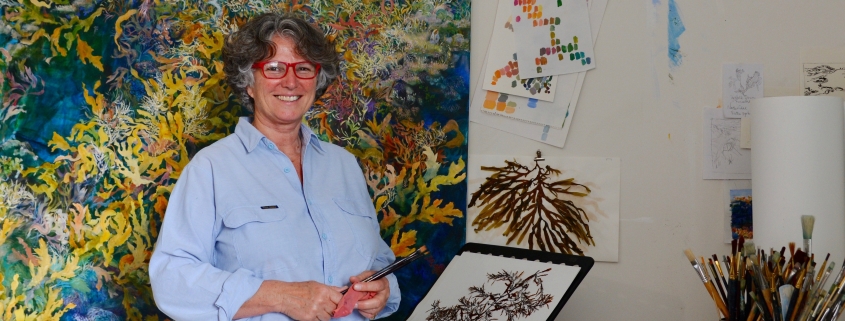Ocean art awards: Art created from marine debris inspires conservation
This art award and exhibition has been postponed until 21-25 October 2024
Creative Western Australians are being invited to transform marine debris and beach finds into art for an exhibition at The University of Western Australia’s Indian Ocean Marine Research Centre (IOMRC).
The Western Australian Marine Science Institution is a sponsor of ‘From Waste to Wonder – Indian Ocean Marine Art Exhibition and Awards’ and donating two cash prizes for the best artworks by secondary school students.
WAMSI CEO Dr Luke Twomey said the world’s oceans absorbed about 90 per cent of the heat generated by rising greenhouse gas emissions and were under increasing stress from the effects of climate change and other pressures.
“We would love to see school students learn more about the importance of the ocean and ultimately help discover new opportunities as well as solutions to problems such as marine heatwaves and the loss of biodiversity,” Dr Twomey said.
“Art can be a great way of engaging with the community and we are excited to support creative students who have an interest in our oceans, particularly the one on our doorstep.”
Exhibition organiser Linda Raynor-Thomas, from IOMRC, said art not only made people feel good it could also inspire them to take more care of the environment.
“Through art we can raise awareness of greater issues concerning the conservation of our oceans,” Ms Raynor-Thomas said.
“One of the early entries we received was made almost entirely of fishing line found on beaches and discarded rope from fishing boats.”
The emphasis of this year’s award will be on recycling Indian Ocean marine and coastal debris with artists invited to creatively transform waste into wonderful works of art.
The art award evolved from a previous event held on the campus within the School of Biological Sciences.
Artist Angela Rossen, a previous award winner, will be one of the judges of ‘From Waste to Wonder’.
“In our lifetime we have a fast-closing window of opportunity to reverse the damage we have done to the very natural systems that support us,” Ms Rossen said.
“Our oceans, which have quietly absorbed pollution since the industrial revolution, are fast reaching saturation point. Heating and acidification are negatively impacting not only the plant and animal communities of the ocean but the very climate systems that support and regulate life on our planet.
“Effective action to conserve, remediate and protect the ocean is imperative now.
“The sciences and arts are well placed to work together to activate for change of the regulatory frameworks that govern extractive and polluting industries to ensure a liveable future,” she said.
Prizes will be awarded for the best works by an adult artist and secondary students. There will also be a prize in the people’s choice category.
For more information head to the IOMRC website.

